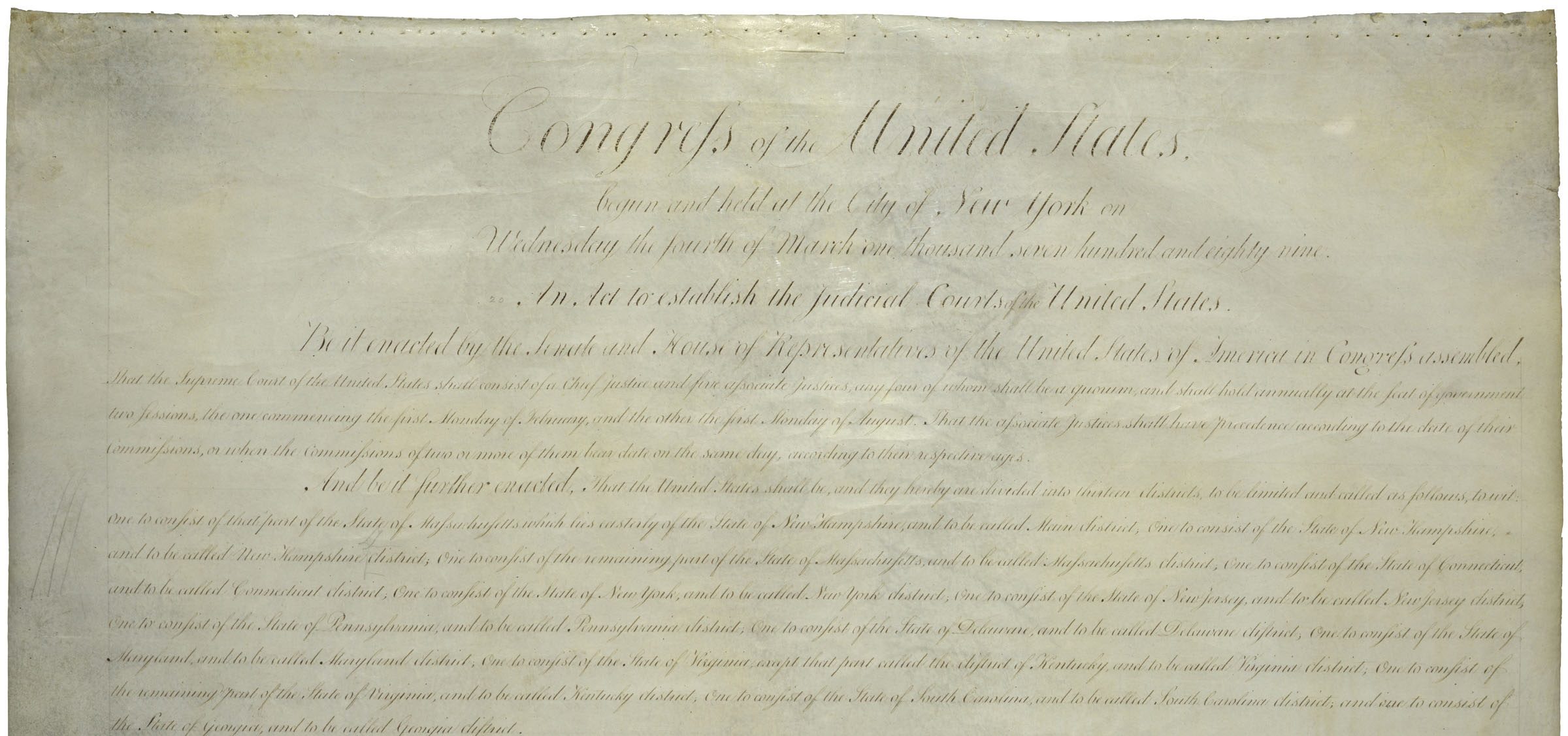In Del Valle v. Secretary of State, No. 19-14889 (11th Cir. Oct. 26, 2021), the panel in an issue of first impression for the circuit holds that the doctrine of consular nonreviewability – by which a federal court declines to consider a challenge to a consular official’s denial of a visa, Kleindienst v. Mandel, 408 U.S. 753 (1972) – is not jurisdictional, and thus the decision not to review is one on the merits.
“Angela Del Valle is a United States citizen. She is married to Carlos Del Valle, who is a Mexican citizen. In December of 2014, Mrs. Del Valle filed a Form I-130 for her husband with United States Citizenship and Immigration Services. Mr. Del Valle, though residing in the United States at the time, was undocumented.” He was permitted to return to Mexico to obtain an immigrant visa to return to the USA. But once he returned, the U.S. Consulate denied the visa, citing three subsections of 8 U.S.C. § 1182.
Mrs. Del Valle then brought a mandamus action against the State Department, contending that the consular official had mistaken “an individual who had made false representations at ports of entry in 1995 and 2002 for her husband” and thus violated the spouse’s Fifth Amendment due process rights.
The district court declined to consider the petition and dismissed under Fed. R. Civ. P. 12(b)(1). It held that “the doctrine of consular non-reviewability precluded it from reviewing the consular official’s decision because the statutory citations in the notice of denial constituted facially legitimate and bona fide reasons. The court also concluded that the doctrine operated by stripping it of jurisdiction.”
The Eleventh Circuit rejects the jurisdictional argument but affirms dismissal of the petition on the merits. Regarding subject-matter jurisdiction, both parties aligned in support of the federal court having jurisdiction. Still, the panel notes that it is We are “not bound by a party’s concession regarding the existence of subject-matter jurisdiction.”
“As enunciated by the Supreme Court, the doctrine of consular non-reviewability recognizes that Congress has plenary power to make policies and rules for the exclusion of immigrants and has delegated decision-making authority on the issuance of visas to the Executive.” Under this doctrine, the court’s job is merely to see that the consul cited “facially legitimate and bona fide” grounds in support of its denial.
“The doctrine is, however, judicially created. It is not the consequence of legislation that divests federal courts of jurisdiction.” Instead “the doctrine goes to the merits of a claim.” Citing authority from the Seventh, Ninth, and D.C. Circuits, the panel holds that “when the doctrine of consular non-reviewability bars review of a consular official’s decision, a district court should dismiss a suit challenging the decision under Rule 12(b)(6).”
But while finding that it could reach the merits, the panel holds that it cannot reverse the consulate’s denial. The panel does not accept the government’s minimalist argument that “mere statutory citation always constitutes a facially legitimate and bona fide reason.” Nevertheless, “Here, each of the inadmissibility provisions cited in the notice of denial provided to Mr. Del Valle specifies discrete factual predicates that the consular official must have found to exist to deny his visa application.”
“Mrs. Del Valle claims that the consular non-reviewability doctrine does not preclude the district court from reviewing in camera the evidence on which the consular official found Mr. Del Valle inadmissible. We are unpersuaded. In essence, Mrs. Del Valle is asking for a merits examination of the consular official’s determination—precisely the type of review that the consular non-reviewability doctrine forecloses.”
The petitioner’s argument reduces to an assertion that the consular officials got the facts “wrong,” which the doctrine insulates from review. “Congress has the power to require that consular officials specifically identify the facts underlying visa denials, just as it requires that they cite to specific statutory provisions of inadmissibility. See 8 U.S.C. § 1182(b)(1)(B). It has not done so, and as a result Mrs. Del Valle’s claim collapses under the weight of the jurisprudential slate.”
